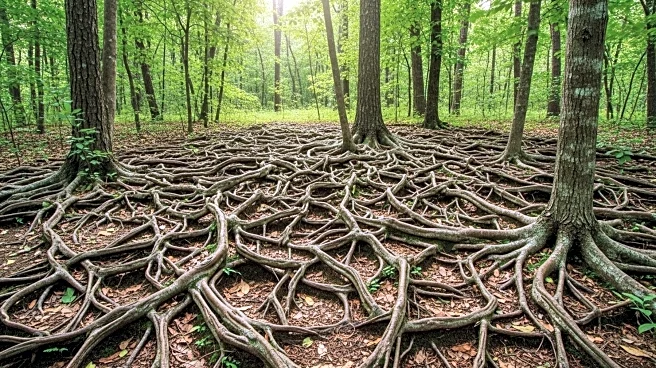What's Happening?
Recent research utilizing satellite data has uncovered significant variations in Earth's seasonal cycles, challenging longstanding ecological models. Led by ecologist Drew Terasaki Hart, the study identifies 'hotspots' of seasonal asynchrony, where ecosystems experience vastly different growth periods despite close proximity. These findings reveal complex localized variations in plant phenology, particularly in Mediterranean and dryland ecosystems. The study suggests that these shifts may impact biodiversity and promote genetic divergence, posing new questions about ecosystem interactions and adaptation.
Why It's Important?
The discovery of seasonal asynchrony has profound implications for ecological models and biodiversity conservation. Understanding these localized variations is crucial for predicting plant and animal behavior, as well as for managing agricultural productivity. The findings challenge traditional assumptions about ecosystem interactions and highlight the need for adaptive strategies in response to changing environmental conditions. The research underscores the importance of satellite data in revealing complex ecological dynamics and informing conservation efforts.
What's Next?
Scientists are reevaluating ecological models to account for the newly discovered seasonal variations. This may lead to revised strategies for biodiversity conservation and agricultural management. The study's findings could prompt further research into the genetic and evolutionary impacts of seasonal shifts, potentially influencing conservation policies and practices. As ecosystems continue to adapt to changing conditions, ongoing monitoring and analysis will be essential to understanding and mitigating the impacts of seasonal asynchrony.
Beyond the Headlines
The study highlights the broader implications of climate change on ecological systems, including the potential for increased genetic divergence and the emergence of new species. The findings challenge traditional ecological models and emphasize the need for innovative approaches to conservation and ecosystem management. The research also raises questions about the long-term sustainability of current agricultural practices and the need for adaptive strategies in response to environmental changes.









